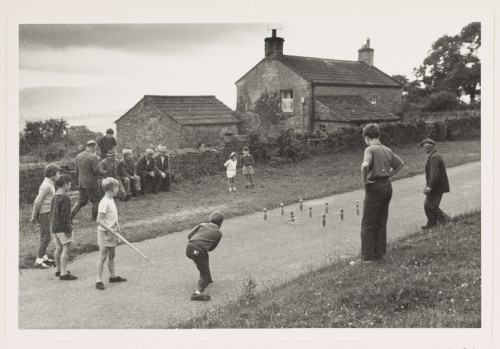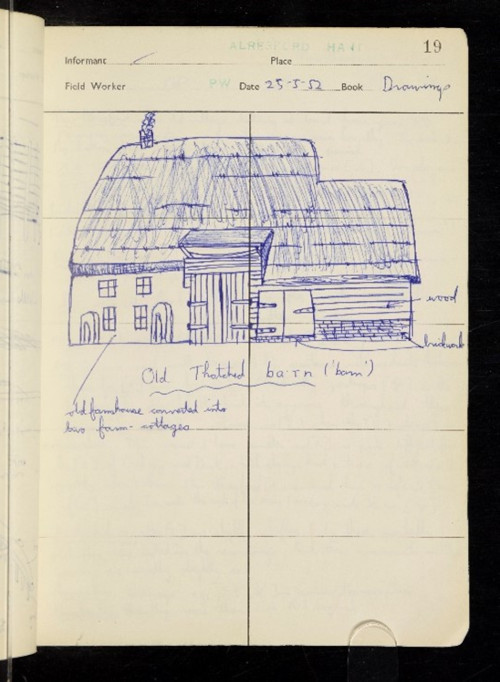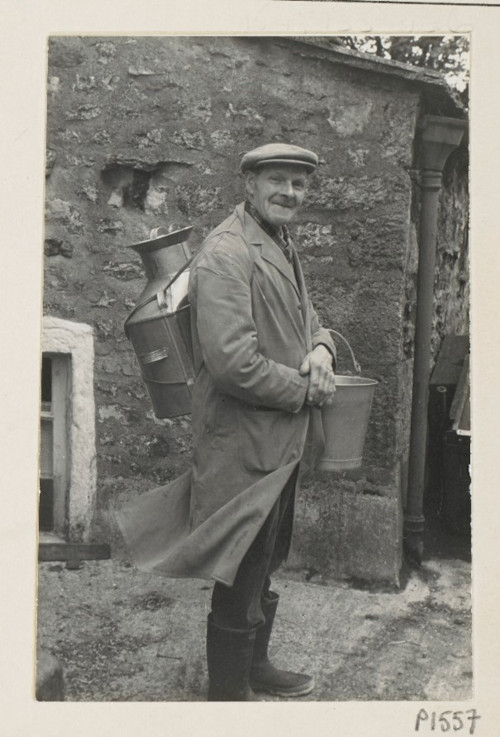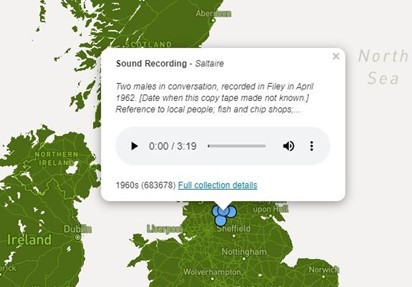Archives Hub feature for May 2021

The LAVC is a unique, nationally important collection that holds all the materials from the internationally renowned Survey of English Dialects (SED) as well as the archives of the University’s former Leeds Institute of Dialect and Folk Life Studies (IDFLS).
It is currently the subject of a 3-year project “Dialect and Heritage” (2022). Funded by the National Lottery Heritage Fund, the project aims to open up the LAVC to public audiences, mapping its rich archives with 5 partner museums’ complementary collections and putting the LAVC back into the communities from which it was originally collected.
Since January 2020 Special Collections staff have been involved in the first phase, focusing on digitisation and enhancing the catalogue to support both long term access via its own catalogue as well as a dedicated project website due to launch in July 2021.
Already extensively catalogued as part of AHRB project in 2002, it has remained inaccessible to most non-academic audiences. Its rich narrative descriptions, pre-dated digital developments and metadata standardisation that can now optimise discovery. Current catalogue enhancements have therefore focused on adding new access points to facilitate improved search/browse.
About the LAVC: Dialect and Folklife
The SED was the first comprehensive, nationwide dialect survey in England, devised and coordinated by Professor Harold Orton at the University of Leeds during the 1950s-1960s. Originating at the end of World War 2, the Survey aimed to record and preserve the nation’s dialects before they were changed forever by modern development and migration. Fieldworkers would travel the length of the country to survey and interview informants in 313 rural locations with over 1000 questions on rural and home life. These were supplemented by a series of over 300 audio recordings for many of these locations, which were captured during or after the survey. To capture the natural richness of these local dialects, fieldworkers would engage informants by getting them to speak about absolutely any aspect of their lives.

The former Institute of Dialect and Folk Life Studies (IDFLS) was part of the University of Leeds from October 1964 to September 1983. Under the initial directorship of Stewart F. Sanderson, the IDFLS expanded its focus from dialect and fostered teaching and research in the field of folk life studies. This included the Folk Life Survey and establishment of its own reference library which included undergraduate and postgraduate student research papers on dialect and folk life/folklore and research materials including manuscripts, printed and audio-visual items.

Highlights in the collection include:
- The Survey of English Dialects questionnaire and response books: Detailed responses to over 1000 questions in 313 rural locations, written mainly in linguistic shorthand (IPA). They also contain more accessible glimpses into life in these communities with notes written in plain English and illustrations capturing ‘incidental material’ about the locations, informants and their traditions. All 313 books are being digitised with many online already.
- Audio recordings: There are over 300 SED recordings and nearly 900 unpublished recordings relating to studies and research within IDFLS. They are being digitised as part of the British Library’s “Unlocking Our Sound Heritage” (UOSH) project.
- Interpretative Word Maps (mainly relating to SED results in the Linguistic Atlas of England ).
- Over 2000 photographs which have now been digitised as part of the project. Over half were taken by Werner Kissling, employed between 1962 and 1966 as a photographic fieldworker in Yorkshire as part of the Institute’s Folk Life Survey. They also include photographs relating to SED locations and informants and student theses.
The Collection gives exceptional insights into language, culture and everyday life from the late 19th-20th centuries. It is particularly rich in capturing a variety of subjects including traditional methods of food production, rural work, crafts, hobbies, buildings, calendar and local customs, folklore and music.
Access Points
To improve access and discoverability the catalogue has been enhanced to include place, person and subject as structured data and access points.
This has included mapping 4000+ bespoke subject terms into 12 high level themes and 100 sub-categories based on Library of Congress Subject Headings (LCSH). This will enable researchers to browse the collections by theme and discover related materials more easily.
We have also extracted location information relating to all photographs, audio recordings and SED response books to create several thousand geo-referenced location records. This means that these items can be plotted onto a map and are now available to discover on a new map-based search.
We have also created authority records for over 1000 informants of the SED, Folk Life Survey and Student Research Papers so that now it is possible to search by creators or informants.
Finally, we have created a dedicated search page (currently in beta version) to bring together all these new ways of exploring the Collection with an A-Z for subject and people that can be browsed as well as the interactive map. Much of the cataloguing work is now complete and will be visible on the online catalogue over the next month. Work by the British Library to digitise and catalogue the SED audio recordings was delayed due to the COVID pandemic but is resuming. Work will continue to publish the wealth of digitised material over the coming year so that researchers can explore the collection remotely. The LAVC collection is available for research (https://explore.library.leeds.ac.uk/special-collections-explore/7436).
Caroline Bolton, Archivist
University of Leeds Special Collections
Related
Browse all University of Leeds Special Collections descriptions on the Archives Hub
Previous features on LAVC
Cor, blust, squit! Stanley Ellis
Previous features on University of Leeds Special Collections
“Gather them in” – the musical treasures of W.T. Freemantle
Sentimental Journey: a focus on travel in the archives
All images copyright University of Leeds Special Collections. Reproduced with the kind permission of the copyright holders.

